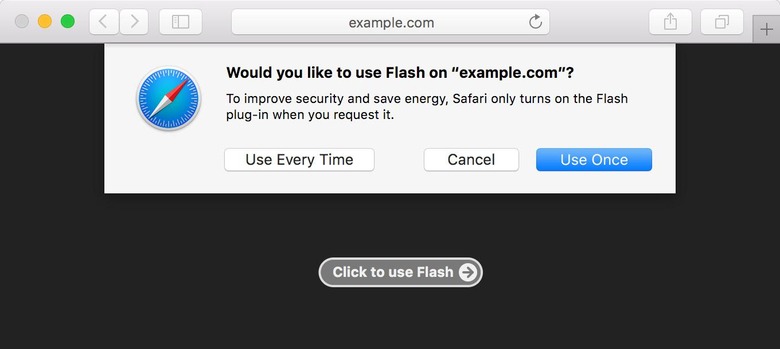Safari Will Block Flash By Default In macOS Sierra
Another one of the final nails has been hammered into the coffin of Adobe Flash. The latest version of Apple's Safari browser that will be included in the release of macOS Sierra has been revealed to block plugins like Flash and Java while users navigate the internet. As the newest version of Apple's desktop OS, mac OS Sierra — revealed at WWDC this week — and Safari 10 will instead default to HTML5 whenever it's available.
In a post on the official WebKit blog, Safari developer Ricky Mondello explained that users will manually have to approve the use of plugins on a per-site basis. If a website supports HTML5, Safari will automatically use it, but if Adobe Flash is the only option, the browser will ask users for permission to let it run (if it's installed, that is).

The prompt will give users the option of allowing the plugin to be used just once, or allow it all the time on that specific website. Mondello says there will be no built-in exception list in Safari 10, so users will be asked about running plugins on each site where HTML5 isn't available.
This move on Apple's part to further reduce the presence of Flash is motivated not only by the software's threat to security, but also to improve battery life and system performance. The software has become recognized as a major source of malware loopholes, and even Adobe is beginning to move away from supporting it.
Of course, Safari isn't the only browser to start blocking Flash content by default. Google's Chrome will do the same starting later this year, in addition to blocking Flash advertising. Similarly, Microsoft's Edge will only permit Flash to run if it's a core element of the page users are visiting.
SOURCE WebKit
